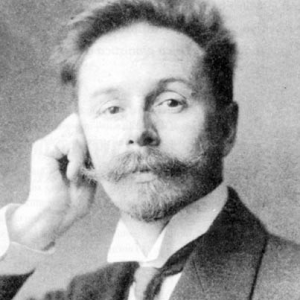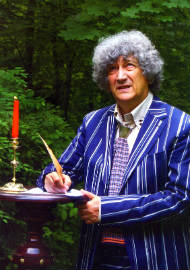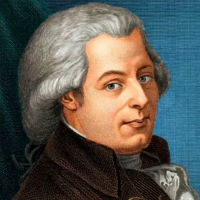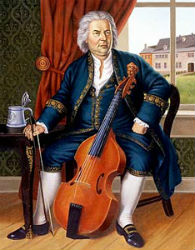Great symphonies of Russian composers
 In the world of music, there are one-of-a-kind, landmark works, the sounds of which spell the chronicle of musical life. Some of these compositions represent a revolutionary breakthrough in art, others have a complex and deep concept, others strike with an extraordinary story of creation, others are a kind of presentation of the composer’s style, and the fifth … are so beautiful in music that it is impossible not to mention them. To the credit of musical art, there are a lot of such works, and as an example we will talk about five selected Russian symphonies, the uniqueness of which is difficult to overestimate.
In the world of music, there are one-of-a-kind, landmark works, the sounds of which spell the chronicle of musical life. Some of these compositions represent a revolutionary breakthrough in art, others have a complex and deep concept, others strike with an extraordinary story of creation, others are a kind of presentation of the composer’s style, and the fifth … are so beautiful in music that it is impossible not to mention them. To the credit of musical art, there are a lot of such works, and as an example we will talk about five selected Russian symphonies, the uniqueness of which is difficult to overestimate.
Second (Bogatyr) Symphony by Alexander Borodin (B Flat Minor, 1869–1876)
In Russia, by the second half of the 19th century, the idea of fix appeared in the composer’s environment: it’s time to create our own Russian symphony. By that time, the symphony in Europe celebrated its centenary, going through all stages of the evolutionary chain: from an opera overture that left the stage and was performed separately from the opera, to such colossi as Beethoven’s Symphony No. 9 (1824) or Berlioz’s Fantastic Symphony (1830). In Russia, the fashion for this genre has not got accustomed: they tried once, another (Dmitry Bortnyansky – Concert Symphony, 1790; Alexander Alyabyev – symphonies in E minor, in E flat major) – and left this idea in order to return to it a decade later in the works of Anton Rubinstein, Milia Balakirev, Nikolai Rimsky-Korsakov, Alexander Borodin and others.
The mentioned composers judged quite correctly, realizing that the only thing that the Russian symphony against the background of European abundance can boast of is its national color. And Borodin has no equal in this. His music breathes the expanse of the boundless plains, the boldness of the Russian knights, the intimacy of the folk songs with their aching, touching note. The main theme of the first movement became the emblem of the symphony, having heard that, a friend and mentor of the composer, musicologist Vladimir Stasov suggested two names: first “Lioness”, and then – more appropriate idea: “Bogatyrskaya”.
Unlike the symphonic canvases of the same Beethoven or Berlioz, based on human passions and experiences, the Powerful Symphony tells about time, history and people. In music, there is no drama, there is no pronounced conflict: it resembles a series of smoothly alternating pictures. And this is radically reflected on the structure of the symphony, where the slow part, usually standing in second place, and the lively scherzo (traditionally following it) change places, and the final in a generalized form repeats the ideas of the first part. In this way, Borodin managed to achieve maximum contrast in the musical illustration of the national epos, and Bogatyrskaya’s structural model subsequently served as a model for the epic symphonies of Glazunov, Myaskovsky and Prokofiev.
The Sixth (Pathetic) Symphony of Peter Tchaikovsky (B Minor, 1893)
There are so many testimonies, interpretations, attempts to explain its content that the whole characteristic of this work could consist of quotations. Here is one of them, from Tchaikovsky’s letter to his nephew Vladimir Davydov, to whom the symphony is dedicated: “During the journey, I had the thought of another symphony, this time a program, but with such a program, which will remain a mystery to everyone. This program is the very thing that is imbued with subjectivity, and often while wandering, while mentally writing it, I cried very much. ” What is this program? In this, Tchaikovsky confesses to his cousin Anne Merkling, who suggested that he described his life in this symphony. “Yes, you guessed it,” the composer confirmed.
In the early 1890s, the idea of writing memoirs repeatedly visited Tchaikovsky. By this time, sketches of his unfinished symphony entitled “Life”. Judging by the remaining drafts, the composer planned to portray some abstract stages of life: youth, thirst for action, love, disappointment, death. However, Tchaikovsky’s objective plan was not enough, and the work was interrupted, but in the Sixth Symphony he was guided only by personal experiences. How the soul of the composer should have been feared in order for music to be born with such an incredible, tremendous force of influence!
The lyrical and tragic first part and the final are inextricably linked with the way of death (the theme of the spiritual song “With saints rest” is cited in the development of the first part), as Tchaikovsky himself testified, citing this symphony in response to the proposal of Grand Duke Konstantin Romanov to write “Requiem “. That is why the bright lyrical intermezzo (the five-framed waltz in the second part) and the solemn-triumphal scherzo are so keenly perceived. On the role of the latter in the work there are many arguments. As it seems, Tchaikovsky tried to show the futility of earthly glory and happiness in the face of inevitable loss, thereby confirming Solomon’s great maxim: “Everything passes. It will also pass. ”
Third Symphony (The Divine Poem) by Alexander Scriabin (C minor, 1904)




